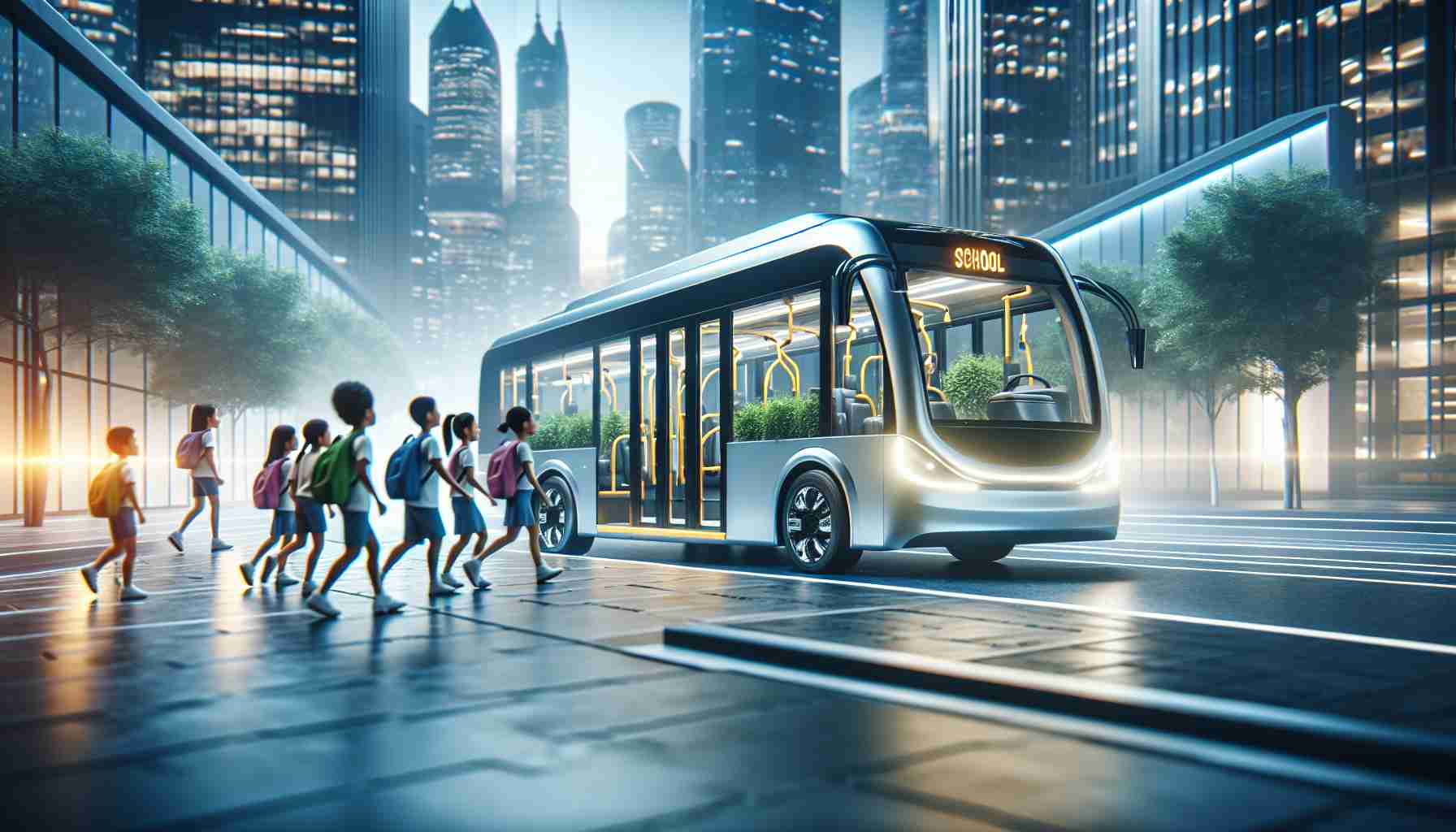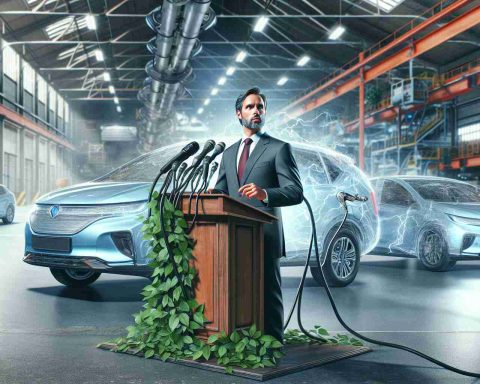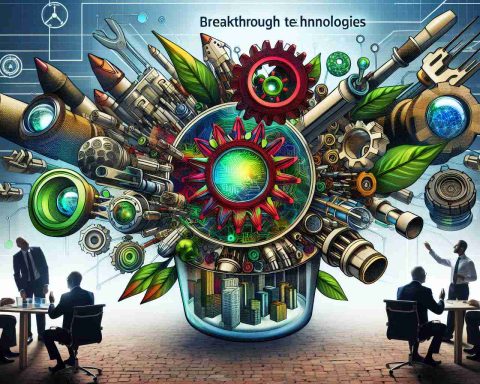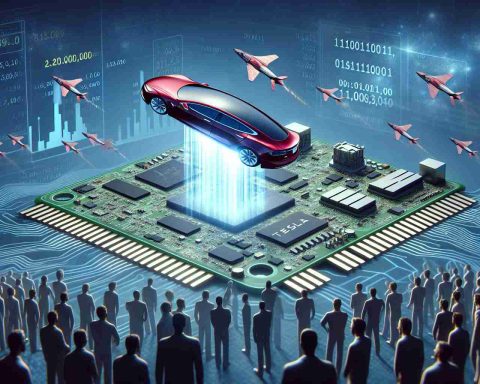A Sustainable Shift in School Transportation
Illinois is paving new paths in the education sector’s approach to clean energy with a groundbreaking investment that promises to change the face of daily student commutes. Riding the wave of the Inflation Reduction Act, Illinois’s bold move includes a nearly $20 million investment in electric school buses, marking a pivotal step in the march towards a sustainable future.
# Pioneering a New Era in Student Transportation
The Illinois State Board of Education (ISBE) has announced a monumental plan to invest $19.9 million in a fleet of 70 electric school buses. But this initiative extends beyond just buying buses; it encompasses the installation of necessary charging stations and specialized training for staff to handle the transition effectively. This comprehensive approach not only signifies a move toward eco-friendly transportation but also showcases Illinois’s commitment to leading by example.
# Environmental and Economic Upsides
Adopting electric buses is set to generate substantial environmental benefits. By reducing carbon emissions, the initiative will contribute to cleaner air and better health outcomes for students and their communities. Economically, electric buses promise long-term savings in maintenance and fuel costs, offering potential financial relief for school districts grappling with budget constraints.
# Challenges and Mitigations
Despite the undeniable advantages, the initiative does face some challenges, such as the high initial costs and the current limitations in the range capabilities of electric buses. However, advancements in battery technologies and supportive government policies are expected to address these hurdles, making electric buses an increasingly viable option.
# Looking Ahead: Broader Implications
The success of this electric bus project could have broad implications, potentially inspiring a nationwide move towards green transportation solutions in schools. As technological improvements drive down costs and enhance efficiency, electric buses promise to not only change how students travel but also to significantly impact environmental sustainability efforts across the country.
For more updates on sustainable innovations, keep an eye on this space.
The Green Shift in School Transportation: Implications for the Future
Illinois’ ambitious project to overhaul school transportation with a $19.9 million investment in electric school buses is more than just an educational reform—it’s a significant step towards environmental sustainability with far-reaching impacts on humanity, the economy, and the world at large. This transition underpins a broader movement towards clean energy that could shape the future of mobility, public health, and economic resilience.
Environmental Impact: Electric buses present a viable solution for reducing carbon emissions and improving air quality. Traditional diesel school buses are known for their high emissions, which contribute to local air pollution and global climate change. Transitioning to electric buses will drastically cut down on greenhouse gases, facilitating cleaner air. This is particularly important for school children, whose developing respiratory systems are more vulnerable to pollutants. Improved air quality promotes better health outcomes, reducing incidences of asthma and other respiratory illnesses in communities.
Economic Implications: While the initial investment in electric buses and the accompanying infrastructure might seem daunting, the long-term economic benefits are considerable. Electric buses typically have lower maintenance costs compared to their diesel counterparts due to fewer moving parts and less frequent need for service. Moreover, the cost of electricity as a fuel source is generally more stable and often cheaper than diesel, offering financial predictability and savings to school districts.
Societal and Educational Impact: The transition to electric school buses serves as a powerful educational tool. It imparts the values of sustainability and innovation to students, possibly inspiring the future workforce to prioritize and advance green technologies. As students witness their schools embracing eco-friendly solutions, they learn the importance of environmental stewardship.
Global and Technological Impact: Illinois’ initiative sets a precedent that could spur nationwide educational reform and innovation in green transportation. As technology evolves, particularly in battery efficiency and charging infrastructure, the feasibility and appeal of electric buses are likely to increase. This normalization of sustainable practices in daily routines could accelerate the global transition to clean energy.
Future Implications for Humanity: As reliance on fossil fuels decreases, broad adoption of electric vehicles can lead to energy independence and enhanced economic stability. The ripple effect of Illinois’ venture could trigger policy changes and encourage other states to adopt similar measures, contributing to a global concerted effort to combat climate change. This aligns with humanity’s broader goals of ensuring a sustainable future and safeguarding planetary health for generations to come.
In conclusion, the Illinois electric school bus initiative not only charts a course towards a cleaner future but also exemplifies a significant shift in thinking about transportation, education, and sustainability. The hope is that this paves the way for a broader transformation that prioritizes the health of the planet and its inhabitants, driving us towards a future where clean energy is the norm, not the exception.
How Illinois is Driving Change with Electric School Buses
The Future of Student Transportation: Electric School Buses in Illinois
In a groundbreaking move propelled by the Inflation Reduction Act, Illinois is leading an ambitious shift towards eco-friendly school transportation through a hefty investment of nearly $20 million in electric school buses. This initiative by the Illinois State Board of Education (ISBE) marks a significant stride in reshaping student commutes with sustainability at the core.
An Investment Beyond Buses
The initiative involves more than just purchasing 70 electric school buses; it also includes the installation of critical infrastructure like charging stations and providing specialized training for staff to facilitate a smooth transition. This holistic approach reflects Illinois’s commitment to not only reducing carbon footprints but also supporting educational institutions in adopting newer technologies efficiently.
Pros and Cons: A Comprehensive Analysis
# Advantages
1. Environmental Impact: Electric buses significantly cut down on carbon emissions, contributing to cleaner air and improved public health.
2. Economic Savings: Despite the upfront investment, electric buses promise cost savings over time through reduced fuel and maintenance expenses.
3. Innovation and Future-proofing: By investing in cutting-edge technology, Illinois schools position themselves at the forefront of educational and environmental advancements.
# Challenges
1. Initial Investment: The high initial costs of electric buses and infrastructure can deter many districts.
2. Range Limitations: Current battery technology limits the range of electric buses, posing challenges, especially for rural routes.
Addressing Challenges
Ongoing advancements in battery technology and supportive government policies are expected to mitigate these challenges, making electric buses a more practical option for schools across the nation. The Illinois model could well serve as a blueprint for other states to follow.
Future Trends and Predictions
Adoption of electric buses is anticipated to grow as more states recognize the combined environmental and economic benefits. As battery technology improves, we foresee increased range and efficiency, further driving down costs and enhancing the appeal of electric school transportation nation-wide.
Trends and Insights
Electric school buses are more than a trend; they represent a fundamental shift in how we approach student transportation. The move is a clear indicator of a larger trend towards sustainable practices in public services, a trend that is likely to accelerate in the coming years.
Conclusion
Illinois’s $20 million investment in electric school buses is not just a local win; it’s a potential catalyst for nationwide change. As other states watch closely, this initiative holds the possibility of creating a ripple effect throughout the educational and environmental sectors.
For those interested in future innovations in sustainable transportation, visit the U.S. Department of Education for more insights.


















